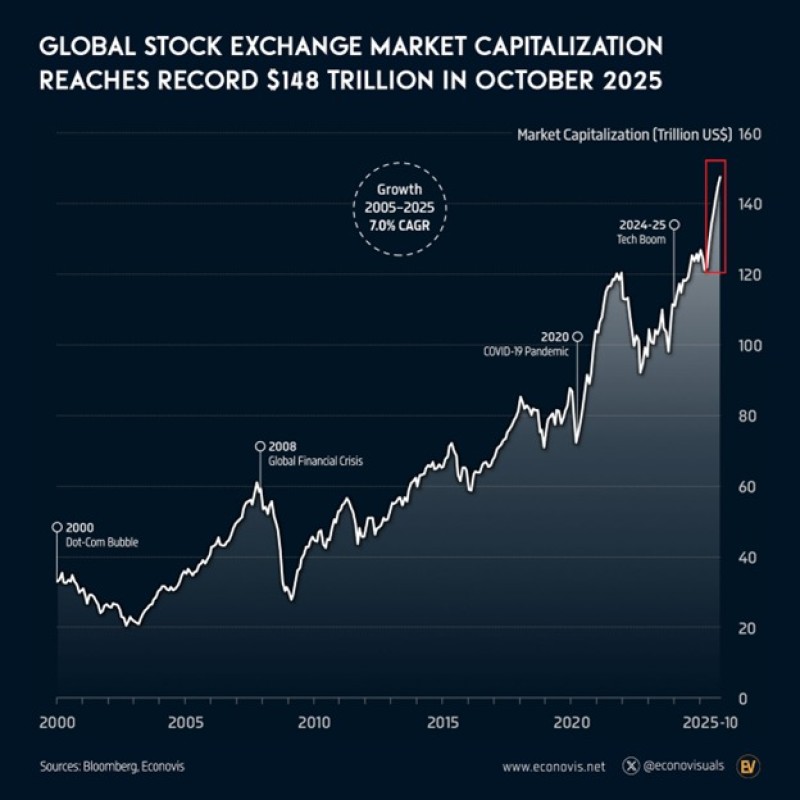World stock markets just hit a milestone that seemed unthinkable two decades ago. Global market capitalization reached $148 trillion in October 2025—a stunning 19.3% jump from last year and well above historical growth trends. This explosive rise is being driven largely by the AI revolution and a handful of dominant technology companies reshaping how capital flows across borders.
Two Decades of Growth Through Crisis and Recovery
The numbers tell a remarkable story, according to The Kobeissi Letter. In 2005, global equity markets were worth around $35 trillion. Twenty years later, that figure has quadrupled, representing roughly 7% compound annual growth.

Markets crashed during the 2008 financial crisis and stumbled again in 2020 when COVID-19 hit, yet each time they bounced back stronger. The steepest climb has happened in just the past two years, with more than $40 trillion in new value created—faster than any previous recovery period on record.
What's Driving the Boom
The surge isn't happening by accident. Corporate spending on artificial intelligence and automation has exploded, pushing tech valuations into uncharted territory. Even with higher interest rates, institutional money keeps pouring into equities.
Emerging markets in Asia and the Middle East are playing a bigger role than ever before, diversifying the investor base. Meanwhile, the biggest companies keep posting record profits, which has kept earnings growth solid even as economic growth cools elsewhere. The catch? Valuations are now stretched compared to long-term averages, and that raises the risk of a sharp pullback if expectations shift.
Looking Back and Looking Ahead
This moment ranks among the most significant wealth expansions in modern history, comparable to the post-World War II boom or the recovery of the early 2010s. But there's a big difference this time: technology dominates in a way it never has before.
A handful of mega-cap firms account for a disproportionate share of total global market value, which concentrates both opportunity and risk. The central question now is whether this rally can hold. If AI continues delivering real productivity gains and innovation stays strong, markets could keep climbing. But if growth slows or sentiment sours, history suggests volatility could return quickly.
 Victoria Bazir
Victoria Bazir

 Victoria Bazir
Victoria Bazir


